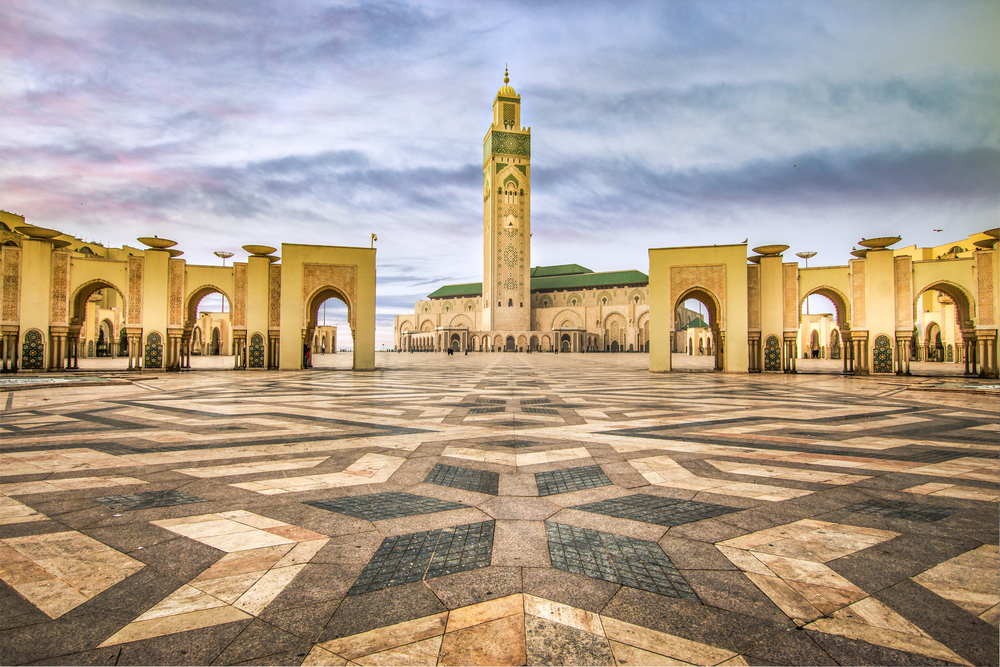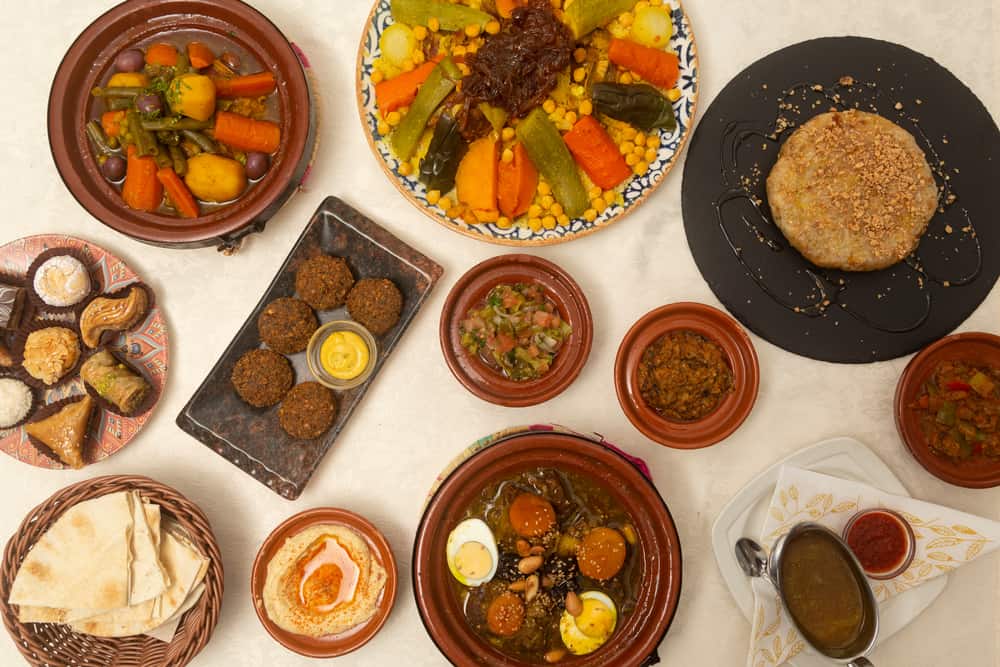Morocco is a country full of vibrant culture and rich history. Visiting Morocco is an exciting adventure, but it is important to understand and respect their customs. Knowing about cultural etiquette will help you fit in and make a good impression.
One key aspect of Moroccan culture is social norms. These are the unwritten rules that guide behavior in society. Following these norms shows respect and helps you connect with locals.
Another important part of Moroccan culture is the dress code. What you wear can show respect for their traditions. It’s important to dress modestly and appropriately, especially in certain places.
Religious considerations are also crucial in Morocco. Islam plays a big role in daily life. Understanding and respecting religious practices is important for any visitor.
Social Norms in Morocco
Social norms in Morocco are essential for maintaining respect and harmony in society. These unspoken rules guide how people interact and behave. By understanding and following these norms, you show that you respect Moroccan culture and values. This can help you connect better with locals and avoid any cultural misunderstandings. For example, respecting elders is very important in Morocco. When greeting an older person, it is polite to bow your head slightly and use formal language.

Greetings and Politeness
In Morocco, greetings are an important part of daily life. When meeting someone, it is customary to shake hands. Close friends and family might also exchange kisses on both cheeks. The traditional greeting “Salaam Alaikum” is often followed by “Wa Alaikum Salaam,” meaning “and peace be upon you too.” It is polite to ask about the person’s health and family. Showing genuine interest in their well-being builds trust and respect. Using titles like “Mr.” or “Mrs.” along with their first name is also polite, especially for elders.
Hospitality and Gift-Giving
Moroccan hospitality is famous around the globe. If you are invited to a Moroccan home, it is a great honor. Bringing a small gift, such as sweets, fruit, or flowers, is a nice gesture. When entering the home, you will likely be offered tea, often mint tea, which is a symbol of hospitality. Accepting the tea and enjoying it is important. Complimenting the host on their home and the tea is also polite. If you stay for a meal, be sure to try a little of everything and express your gratitude. It is considered polite to eat with your right hand, as the left hand is reserved for personal hygiene.
Dress Code in Morocco
The dress code in Morocco is influenced by the country’s cultural and religious values. Dressing modestly is a sign of respect for these values and helps you fit in with the locals. It shows that you are aware of and appreciate their traditions. This is especially important in religious or rural areas where traditional values are more strongly observed. Dressing appropriately can also help you avoid unwanted attention and make your visit more comfortable.
For Men
Men should aim to dress conservatively in Morocco. Long pants and shirts with sleeves are standard. Avoid wearing shorts in public places, as they are seen as too casual. Tank tops and sleeveless shirts are also not recommended. In cities like Marrakech or Casablanca, you might see more relaxed dress codes, but it is still best to err on the side of modesty. When visiting religious sites, wearing a long-sleeved shirt and long pants is essential. Simple, clean, and neat clothing is always appreciated.
For Women
Women in Morocco should dress modestly to respect local customs. This means covering the shoulders, chest, and knees. Long skirts, dresses, or loose pants paired with a modest top are ideal. Carrying a scarf is useful, especially when visiting religious sites, as you may need to cover your head. Avoid tight or revealing clothing, as this can be seen as disrespectful. In more conservative areas, like rural villages, even more modest attire might be appreciated. By dressing appropriately, you show that you respect Moroccan values and traditions, making your interactions with locals more positive.
Religious Considerations in Morocco
Islam is the predominant religion in Morocco and influences many aspects of life. Understanding and respecting Islamic practices is crucial for visitors. This includes being mindful of prayer times, which occur five times a day. You will hear the call to prayer from mosques, and it is respectful to pause and allow others to pray without interruption. Being aware of religious holidays, such as Ramadan, is also important. During Ramadan, Muslims fast from dawn to sunset. Visitors should be mindful of eating and drinking in public during this time.

Prayer Times and Mosque Etiquette
Prayer times are integral to daily life in Morocco. The call to prayer, or Adhan, happens five times a day. During these times, many businesses may close temporarily, and people will pause their activities to pray. If you are near a mosque during prayer time, it is respectful to remain quiet and avoid walking in front of people who are praying. When visiting a mosque, dress modestly. Men should wear long pants and women should cover their hair, arms, and legs. Always remove your shoes before entering the prayer area. It is polite to speak in a low voice and avoid taking photos without permission.
Ramadan and Fasting Etiquette
Ramadan is a holy month in Islam where Muslims fast from dawn to sunset. During this time, eating, drinking, and smoking in public are considered disrespectful. Visitors should be mindful of this and try to eat in private spaces like hotels or designated areas. After sunset, the fast is broken with a meal called Iftar. It is a joyous time and sharing this meal with locals can be a wonderful cultural experience. Many restaurants may offer special Iftar menus, and it’s a great opportunity to try traditional Moroccan dishes.
Market and Shopping Etiquette
Markets, known as souks, are a big part of Moroccan life. They are vibrant, bustling places where you can find everything from spices to handmade crafts. Shopping in a souk can be a fun experience, but there are some etiquette rules to follow.
Bargaining
Bargaining is expected in Moroccan markets. It is part of the shopping experience and can be enjoyable if done respectfully. Start by offering about half of the asking price and negotiate from there. Be polite and friendly. If you reach a price you are happy with, it is customary to buy the item. Walking away after agreeing on a price is considered rude.
Respecting Vendors
Vendors in the souk take pride in their goods. Show respect by handling items gently and asking before taking photos. It is also polite to greet the vendor and engage in small talk before discussing prices. Learning a few words in Arabic or French can be helpful and appreciated.
Dining Etiquette
Dining in Morocco is a delightful experience, filled with rich flavors and communal traditions. Whether you are eating in a restaurant or invited to a home, following dining etiquette is important.

Eating with Hands
In Morocco, it is common to eat with your hands, especially for traditional dishes like tagine. Always use your right hand, as the left hand is considered unclean. If you are unsure, observe your hosts and follow their lead.
Meal Structure
A typical Moroccan meal starts with a series of small salads, followed by a main dish like tagine or couscous. Bread is often used as a utensil to scoop food. The meal usually ends with fresh fruit or pastries and mint tea. It is polite to try a little of everything offered to you.
Compliments and Gratitude
Expressing appreciation for the food is very important. Compliment the host and show gratitude for their hospitality. Saying “Shukran” (thank you) and “Bismillah” (in the name of God) before eating are polite gestures.
Conclusion
Understanding and respecting Moroccan cultural etiquette is key to having a positive experience in the country. By following social norms, dressing modestly, and respecting religious practices, you show appreciation for Moroccan culture. This not only helps you fit in but also enriches your travel experience.
